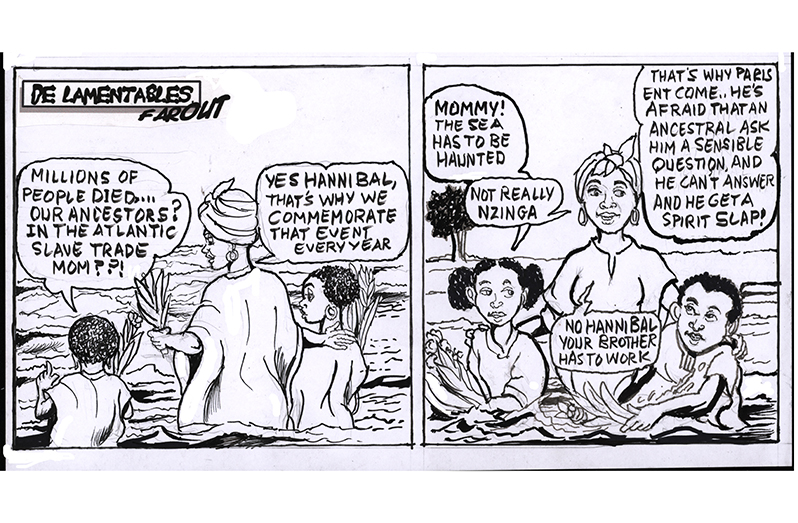–and the worlds of learning attached to it’s necessary awareness
THE voyage into chattel slavery was the beginning of an age of change for the Africans who were brought to the Americas, and eventually for their descendants, as well as for those who remained in Africa as witnesses.
What is necessary is the understanding that the concepts of Christianity were first embraced by Africans. “When the pagan Romans came into North Africa in 332 B.C., the Romans persecuted the Africans for their Christian beliefs.
Coupled with that, the drying up of the areas that became the Sahara Desert was long in process. Now, combined with the Roman presence, many of the Afro-populations that were once Carthaginians moved further into inner Africa” – see The Arab Invasion of Egypt by Alfred Butler.
The age of slavery began after the fall of the Moors. And with the products that the Moors had introduced into Europe, generated the idea of possessing tropical lands to grow such products and to plunder. Thus, with Moorish maps and tales of trade to unknown lands, the then new nations of Europe began using African seafarers, like the record of Al Omari – see Introduction to African Civilizations, pg. 232, John G. Jackson for an extended narrative. The quest for colonies began.
The conflict that lay with the new Christian world of Crusaders and the forced conversions or genocide, first with the pagan Europeans, was accompanied by invented religious bigotry for the justification of African slavery.
The Rabbis, along with the Church fathers of Christendom, concocted a doctrine using ‘Ham & Noah’ to devise their right to African slavery. (This has been based on ethnic bigotry and religion.) However, this is not the only time such a plot was used. Thus, the reader must realise that the MAAFA embodies multiple streams of studies to grasp and understand the myriad psychological confrontations that must be triumphed over.

Ironically, the first scholar to experience the censorship of an Afro-history presentation was a noted European, Count Constantine De Volney, following his visit to Khemet (Egypt) between 1783 and 1785. He had described the appearance of the Sphinx as “typically Negro in all its features”. He further wrote, “There are a people now forgotten who discovered, while others were yet barbarians, the elements of the arts and sciences. A race of men, now ejected from society for their sable skin and frizzled hair, founded on the study of the laws of nature, those civil and religious systems which still govern the universe.” (Volney discovered the glaring omissions of the above in his work, published in English, only after he had mastered the English language. And he then forbade the future sale of his work until it could be published in its entirety.)
The arguments of Ancient Africa’s greatest gift, Khemet, have been indisputably presented by scholars to diminish both religious and historical misrepresentations. Because this article cannot carry the volume of that content, I can refer to scholars like the Senegalese Cheikh Anta Diop, historian, physicist, and philosopher, whose responses to eventual critics are through a principal source. See Chapter XII of The African Origin of Civilization: Myth or Reality. Also, The Peopling of Ancient Egypt & The Deciphering of the Meroitic Script and Precolonial Black Africa by Diop.
In closing, many European anthropologists have concluded, in support of Diop’s theories, some even before his time. This is an area of study that was distorted to fit political and false idealisms, but is much clearer now, as advanced scientific and historical methods are available.
I cannot conclude without reference to our own George Granville Monah James, whose Stolen Legacy may have caused his sudden death after the publication of his incredible book in 1954, which is still a masterpiece. Then, the late Dr. Ivan Van Sertima, whose volumes continue to intrigue our minds to explore.












